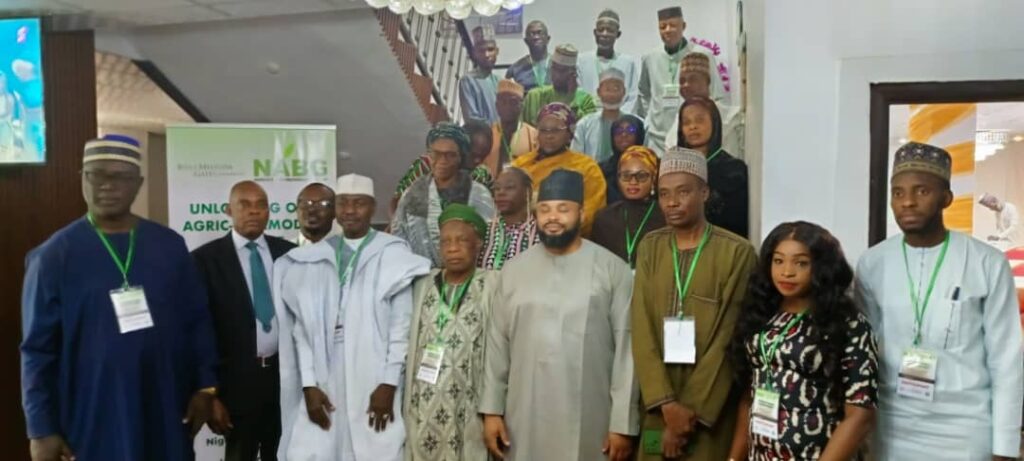By Editor
Worried by incessant rejection of Nigeria agricultural products in the international market, stakeholders in the agro export business have advocated right policy dimension to mitigate huge loses recorded annually.
Besides, the experts unanimously called for the revival of produce commodity standard board that guarantee quality assurance and grading system of products before export as a way of attaining zero reject.
African Export Import Bank (Afriximbank) say Nigeria loses an estimated $700 million to export rejection of its agro products to Europe alone in 2022. The submission came even as National Agency for Food and Drugs and Administration and Control (NAFDAC) recently said about 70 per cent of Nigeria’s products are being rejected abroad.
The stakeholders who gathered in Kano for the Northern Regional Validation Workshop to rectify policy draft on standardization of agric products also called for revival of commodity standard board among other recommendations to addressing the ugly trend.
At the workshop organized by Nigeria Agriculture Business Group (NABG), a consultant food scientist, Dr. Dahiru Adamu said agric products are facing rejection abroad because of poor quality and lack of standard compliance.
Dr. Adamu contended that the ugly trend may continued to devalue the potentiality of Nigeria’s competitiveness in the global products standard, if the country failed to revive it’s commodity boards that validate its products quality assurance.
“In previous times, Nigeria use to have commodity boards, cotton, Groundnut, Soghum. The boards ensure the commodities meet standard and devoid of contermination. Unfortunately, the processing companies are now worried with the kind of commodities coming from the farms with large percent of them with low quality.
“This is not acceptable. So it is on this realization that NABG deem it fit to bring stakeholders together to design policy on standardization of agric commodities. The policy draft has been developed and we are to validate it”. Dr. Adamu noted.
On his part, a product development expert, Mr. Williams Ezeagu traced the challenge of low quality assurance of Nigerian products to the period when agricultural adjustment program who introduced at the detrimental of the validation boad. He said the action which was partly responsible for the situation had exposed export business to all commence affairs.
Mr. Ezeagu equally believed the validation of new policy for agro products will bring about solution to huge loses of foreign revenue and eliminate rejection. He also faulted what he considered as lack of unism among existing structures of government in the sector.
According to him, “Nigeria is presently loosing huge money to product rejectionrejection. Although we have structures but unfortunately there is no synergy and coordination among themselves.
“We have Federal produce inspection service who does warehousing and inspection but then they are restricted to certain products. Also there is Nigeria Quarantine ServicesServices, SON, NAFDAC and others. But they are not working in unism”.
Mr. Celestine Okanya, a Consultant, Developmental Policy and Retaliation Processes who is coordinating the new draft policy explained said the workshop was aimed at validating a policy design to change the narrative.
“We have always had standards for different things in Nigeria including agricultural commodities because our standard bodies does those standard. But what we are doing differently now is to have a national policy that will provide the framework or roadmap that will enable farmers plant base on particular grade you want to harvest and how the produces are process into grade that will enable predictable prize in the market.
” The new policy we are working on and we hope farmers and government will embrace it to making farming production and processing a prosperous business in Nigeria. Nigeria Agric Business Group, working to ensure standization of agric commodities”.
On how to achieve zero reject of Nigeria products, Okanya said it is possible but under full implementation of policy and certification of standard. To him, policy on it own can not achieve zero rejection of Nigeria agric produce.
“What will achieve rejection is the successful implementation of the policy. When we develop the policy and it is approved, we need to ensure its successful implementation. Then, we can control rejection and then, the issue of zero reject can be achieved”. Okanya noted.
Director General, NABG, Ja’afar Abubakar Umar explained that the group with funding from Bill and Melinda Gate Foundation is building a frontier in agricultural revolution that would shift agric from conservative nature to business viability.
